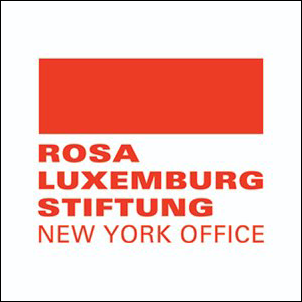An event organised by the Rosa-Luxemburg-Stiftung New York City, in cooperation with the Rosa-Luxemburg-Stiftung Sao Paulo (Brazil) and the Rosa-Luxemburg-Stiftung Brussels (Belgium).
Thursday, 25 February
20:00 (CET)
Languages:
English and Portugese
As a lot of studies have shown, female mobility is characterized by trip-chaining and time poverty. The main reasons are the unpaid care work and the gender pay gap, and that women are more vulnerable due to their physical condition. Women have to rely more often on public transport, but try at the same time to be safe when out alone at night. Women ask themselves “how do I get there and how do I get back?” With which means of transport do I feel safe on the route at night? Will I go home with others later, or will I be alone? How much money do I want to spend on my transportation? Is the last mile of the night reasonable and the road illuminated? How can I defend myself in case of an attack?
Lower employment rates, part-time roles and low-wage positions are the main factors which determine a sensible difference between genders in the labour market, in social life and in transport behaviour. Furthermore, even at retirement gender needs are notable, given that women make up the predominant part of the elder population. The picture that emerges is one where women travel differently than men in relation to transport modes used, distance travelled, the daily number of trips and their pattern, and, not surprisingly, they also travel for different purposes.
To fight climate heating we need an increase of public transport in our cities and in our rural areas but the question is how to make sure that women can benefit from the right to mobility and how to make sure that public transport is safe and affordable for everyone.
Programme
20:00 – Welcome
Facilitator:
- Norma Rantisi (Canada)
Inputs:
- Ms. Angie Schmitt, writer and mobility activist (United States of America) (10 min)
- Ms. Ebony Noelle Golden, performance artist, scholar (United States of America) (10 min)
- Ms. Neon Cunha (Brazil) (10 min)
- Ms. Alexandra Millonig, researcher, Austrian Institute of Technology (Austria, European Union) (10 min) (tbc)
20:45 – discussion with the participants
21:20 – concluding remarks
21:30 – end of event
